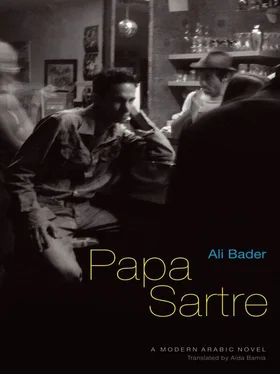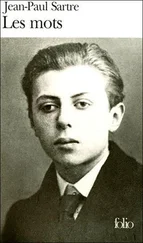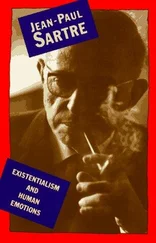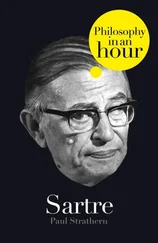The singular impression Si Muammar left on the philosopher was that he was a superficial man. Though Abd al-Rahman was well aware that philosophy was theoretical and that existentialism had a practical side, he also knew that the theory was its creative and foundational element. Everyone knows that existentialism came about as a reaction to abstract philosophy, but one must admit that abstraction is the basis of philosophy. Existentialism cannot reject abstraction without the aid of abstraction, since it is based on abstraction. Can, therefore, Abd al-Rahman be considered bereft of any philosophy?! If so, what would be the meaning of those superficial actions, totally lacking a theoretical framework or formulation, undertaken by pickpockets, beggars, thieves, and drug addicts?
Braking his silence, the philosopher declared, “This hashish addict seems proud of his ideas.”
“He’s superficial,” said Ahmad.
Abd al-Rahman added, “Insignificant.”
The truth of the matter is that Abd al-Rahman was interested in Si Muammar’s words only to the degree they would help him reach the waitress. He felt this scoundrel did not need the waitress, because he had an Algerian girlfriend who physically was not bad at all, though her face was pale and skinny. Si Muammar seemed proud of their friendship and showed clearly that his relationship with the Café de Flore waitress was based only on casual interest, the parasitic relationship of a blood-sucking bug. Despite Si Muammar’s political interpretation, his position was weak, simply the relation of an oppressed masculinity with a female symbolizing the conqueror. Making love to her was his way of taking his revenge and humiliating the colonizer.
Abd al-Rahman concluded that Si Muammar would give up his French girlfriend in the end, and he, Abd al-Rahman would win her over without any feelings of guilt. When he returned to his room in Gay-Lussac he realized that the encounter had not been a total success, but still the path to his waitress was now more easily traversed.
The event was magnified in his dreams and took on a heroic aspect. Head on the pillow, the philosopher saw a forest, streets, long alleys, two lakes separated by parks, and playgrounds. He imagined a horse-drawn carriage moving through the forest paths while the heavyset driver chatted about the importance of the place. Throughout the forest there were buildings, swimming pools, huge trees, and beautiful lakes. He saw himself walking with the waitress, lying on the ground with her, and relaxing in the shadow of a tree as he brushed over the panty-line beneath her skirt. A violin player added to the romantic atmosphere. Her lips were trembling and her eyes softening. She pulled him close and, shivering with pleasure, gave him a passionate kiss. Just then a bird let go its droppings into his eye. Unperturbed, he wiped them off, unwilling to stop kissing the waitress. The bird droppings continued to land on his face, however, and finally awakened him from his sleep. The upstairs tenant’s bathroom had flooded and was leaking from his ceiling and onto his face.
29
Abd al-Rahman left his apartment and wandered along the Rue Saint-Michel. He was filled with a sense of energy, having awakened without the help of the alarm clock. He wanted to forget past events but was reluctant to give up thinking about the waitress, despite her unpleasant attitude toward him. He was convinced that she was nicer to Si Muammar, Sartre, and the other philosophers who frequented the café. He was somehow convinced that this was her way of being reserved with him or possibly a clever strategy on her part, an instinctive woman’s skill. He found excuses for her comportment, but they were not in his favor.
He took the metro toward Saint-Germain-des-Prés. The train car was crowded, and the rush of passengers grabbing at the empty seats upset him immensely. He swore at them as he settled into a seat, thinking of the days ahead when he would become the waitress’ lover. Their daily encounters at the café and elsewhere would make Si Muammar jealous, maybe even Sartre as well. This notion comforted him and made him more tolerant of the passengers getting on and off at each stop.
He hesitantly pushed open the door of Café de Flore and saw Sartre sitting at a table with Simone de Beauvoir and three other friends. Sartre was talking in an ugly voice that sounded like the Khudayri family’s rooster. The waitress stood behind a wooden bar near Sartre’s table. He approached her with a smile and was certain that Si Muammar had told her about him. She was wearing a smile that might be construed as an expression of admiration. He felt liberated, now convinced that his assumptions were correct and that the waitress had fallen head over heels in love with him. He desired her even more, and when he turned to her he was nervous. Her red lips, rosy cheeks, blue eyes, and bulging breasts made him dizzy. He fell silent when she asked him in a neutral tone, still smiling, “Would you like to order something?” In a soft and low voice he said, “No, no.” A strong dart of desire convulsed him.
“Very good, then, you’ll have to leave,” she replied. He was shocked and asked for an explanation.
“You can stay if you order something.” He provided a reason for his presence that he hoped would open up new horizons for him, “I came to see Si Muammar.”
“He hasn’t come in today,” the waitress said and walked away coquettishly in her tight cream skirt and hip-hugging blue angora sweater. He could see her panty-line and again felt that electric shock of desire. There was bitterness in his mouth and a pang in his heart. All the feelings of relaxation he had felt when he entered the café were gone. Sartre’s ugly voice sounded even uglier.
He walked down the street watching the wet flowers, his eyes on the women rushing in their white raincoats, looking stern, and advancing like military guards. He took a deep breath, gnashed his teeth, and decided to walk like the Frenchmen did, with big fast steps. He entered the Café le Jour, sat at a table, ordered a Turkish coffee, lit a Gauloise cigarette, and began thinking about the events of the day. The coffee tasted terrible, nothing like his usual coffee at Café de Flore.
30
He walked fast, pondering recent events. He considered his effort to become acquainted with Si Muammar one of his latest failures, a simple matter of fact, like a rejection by someone we like. It was a simple truth, the common denominator that ties together all those who fall in love. It’s a triangle with conscience at one point, vice at another, and sex at the third.
This was a narrow outlook, but Abd al-Rahman turned his anticipated relationship with the waitress into a relationship with himself, a way of correcting a commonly held misconception that vice can be erased and conscience ignored, but sex remains the foundation upon which everything rests. Sex is a necessity, just like food, philosophical faith and religion, and normal bodily functions. He was wondering how he could restart the broken dialogue, meet Si Muammar and go with him to Café de Flore. They would talk like fast friends, and Si Muammar would treat him as an old and important colleague. He would introduce him to the waitress, and then leave the details to Abd al-Rahman. Later, there would be a reaction that neither he nor the waitress would be able to control, a sexual attraction that would shake them both to the core. Sex would acquire a central and philosophical significance for a changing life, for an end to the fear of the other’s body, of otherness. The encounter would take place on the bed, this being the only place where violence ends.
This encounter would put an end to his inclination to destroy the world, as all his violent tendencies would be channeled into this concept, or what the philosopher calls the ‘situation,’ the most dramatic of all situations. He even considered it to be the most serious, the most essential, and the most specific. According to him it was disconcerting to neglect it, and he regretted his inability to get over this short moment, stop the torture of this debate, and refrain from seeing himself as a failure — rejected and alone. Was his anxiety over the case of the Café de Flore waitress stronger than his angst over death, existence, and fate? This was a constant preoccupation, though weak and superficial at times, but it was at least clear.
Читать дальше












